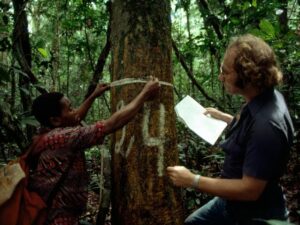Back to: ZOOLOGY 500 Level
Welcome to class!
Hello my brilliant friend! How’s everything going? I hope you’re feeling confident and ready to learn, because what we’re discussing today will make your Zoology journey even more exciting. You’re not just a student—you’re a future scientist, and fieldwork is one of your most powerful tools. Let’s walk through this together, like we always do. You’ve got this!
Importance Of Fieldwork In Ecology
Meaning of Fieldwork in Ecology
Fieldwork in ecology means stepping outside the classroom to study animals, plants, and their environments directly in their natural setting. It could be a forest, a savannah, a wetland, a farm, or even your school’s backyard. Rather than just reading about ecological interactions, you experience them with your own eyes. Think of it like learning to swim—not by reading a book, but by jumping into the water (safely, of course).
Observation of Natural Behaviour

When you’re out in the field, you observe organisms exactly as they are, without interference. You can see how ants form trails, how monkeys groom each other in trees, or how birds choose safe spots to build their nests. These behaviours are best understood in their natural settings, not in a lab or a textbook.
Application of Ecological Theories
Fieldwork helps you connect classroom knowledge to the real world. For example, when studying ecological succession, you might visit a piece of land that was cleared a few years ago and now has shrubs and young trees growing. Suddenly, what you learnt in theory becomes real and memorable.
Development of Scientific Skills
Fieldwork teaches you how to collect data properly—using tools like GPS, sweep nets, soil samplers, and quadrats. You also learn how to record your findings, analyse patterns, and think like a scientist. These are important skills whether you plan to go into research, environmental management, or wildlife conservation.
Exposure to Local Biodiversity
Nigeria is rich with diverse habitats and species. From the mangroves of the Niger Delta to the savannahs of Taraba, there is so much to learn right around us. Fieldwork lets you study animals and plants that are unique to our continent, making your knowledge more grounded and relevant.
Problem-Solving and Adaptability
Fieldwork isn’t always smooth. Sometimes, the weather changes suddenly or the terrain is rough. These challenges train you to think fast and adapt. You become more resourceful and better prepared for future research or work in the field.

Real-Life Example
Imagine Zainab, a 500-level Zoology student at University of Nigeria, Nsukka. She decides to study how fire affects insect populations in a burnt savannah area. Instead of just relying on previous studies, she visits the site regularly, collects samples, interviews local farmers, and keeps a detailed journal. Through this hands-on experience, Zainab gains deeper understanding, stronger confidence, and unique data for her final year project.
Summary
- Fieldwork allows students to observe organisms in their natural habitat.
- It helps apply ecological theories in real-life situations.
- Practical skills like data collection, species identification, and adaptability are developed.
- It exposes students to local environments and helps them understand the realities of ecological research.
Evaluation
- Describe fieldwork in your own words.
- Why is observing natural behaviour important in ecology?
- List two tools you might use during fieldwork and their uses.
- Think of a place in your area—what kind of fieldwork can be done there?
You’re doing amazing work! The time and effort you’re putting into learning will pay off in big ways. Stay curious, stay consistent, and remember—you’re not alone. Afrilearn is here to support you, every step of the way. Until next time, keep reaching for the stars!
